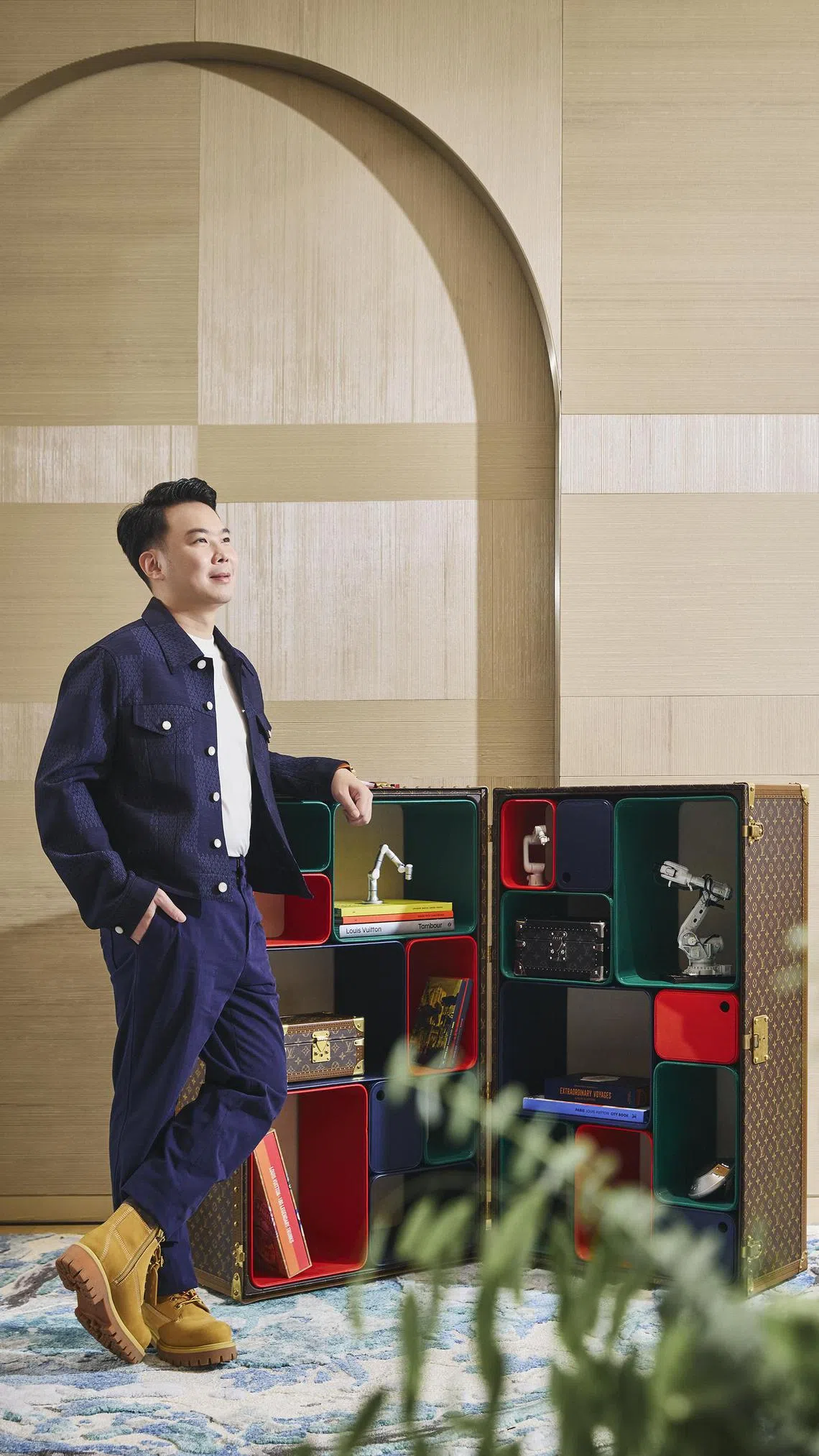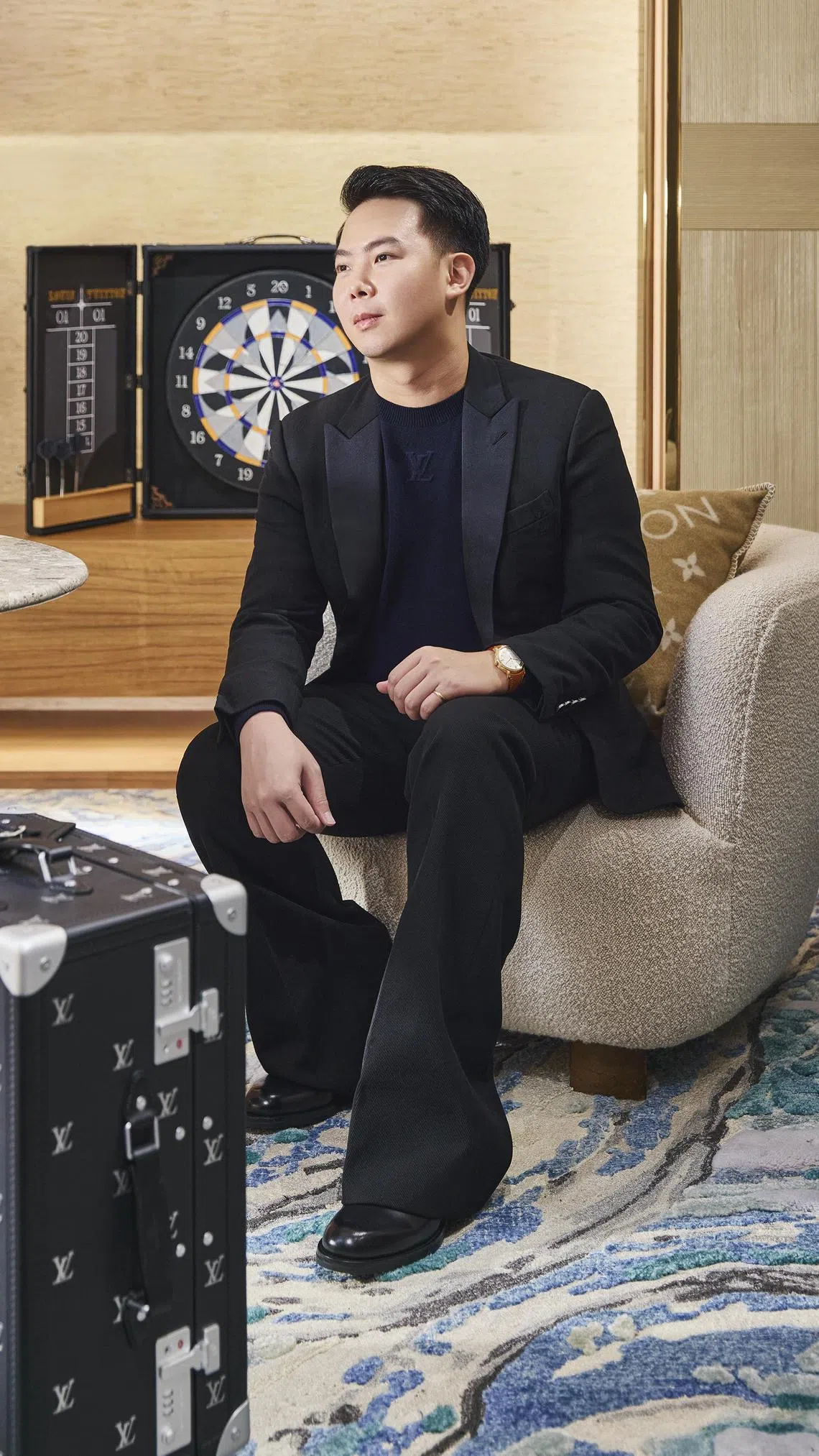Leong Yong Shin: Bytes and big dreams at Augmentus
The co-founder of Augmentus is simplifying robotics for the whole world

LEONG YONG SHIN IS TALKING about robots – not the humanoid kind you see in sci-fi movies, played by good-looking actors – but the real ones, those unglamorous, hardworking machines that paint cars, weld metal, assemble chips and perform other repetitive tasks that many of us don’t think about.
Leong is the co-founder of Augmentus, a robotics company that is making the programming of these machines as easy as scrolling through your phone. He is quiet and unassuming, a stark contrast to the larger-than-life tech founders idolised in Silicon Valley. But that’s kind of the point. In the past four years, Augmentus has been quietly writing a Silicon Valley-esque success story right here in Singapore, and gradually changing the game in manufacturing industries worldwide.
“We want to make robots less scary,” he says, cracking a tiny smile. “Robot programming is usually complex because users must control robot movements in six dimensions. But we have simplified that and made robot control accessible and intuitive for everyone.”
Augmentus, which he co-founded with Daryl Lim and Chong Voon Foo, is a no-code robotics platform. In essence, it takes the once-complicated task of programming industrial robots and boils it down to something that feels a lot like playing games on your tablet. Augmentus’ software lets you scan objects directly, set up tasks with simple drag-and-drop commands, and watch the robots go to work – all without needing to write a single line of code.
“Almost anyone can master robotics now,” the 34-year-old says, his eyes lighting up. “We can generate multidimensional codes to control even the most complex robotic systems – and make them easy to manoeuvre.”
The platform is compatible with more than ten major robotics manufacturers including ABB, Kawasaki, Universal Robots, Kuka, and Yaskawa, and has been adopted by global companies such as Hyundai, Johnson & Johnson and ST Engineering. The company is now on track to double its customer base to more than 100 companies within the next 12 months, solidifying its status as a game-changer in the world of industrial automation.
Navigate Asia in
a new global order
Get the insights delivered to your inbox.
From medicine to machines
Leong’s journey to robotics is hardly a straightforward one. As a child, he was an academic high-flyer with a particular love for biology. “I was top of my cohort in biology since secondary school,” he says, with a small hint of pride. “I wanted to go into medicine, but I didn’t make it.” Instead, he pivoted to biomedical engineering, chasing the closest thing to his first passion. But when he graduated, the job market was unkind to him, and he found himself searching for another path.

“I taught myself to code because, honestly, I needed a job,” he says matter-of-factly. That self-taught coding ability eventually led him to a job monitoring water levels in Singapore’s canals. From there, he moved to the Advanced Remanufacturing and Technology Centre (ARTC) where he was first introduced to the practical world of robotics. “I saw how robots could take over the dirty, dangerous, and dull jobs no one wanted to do… I thought, this wasn’t just useful technology; it was something that could make a real difference to people’s lives.”
ARTC is led by the Agency for Science, Technology and Research, where he met Chong, a fellow tech enthusiast who would become one of his closest collaborators. Together with their third partner Lim – “one of the best presenters I’ve ever met,” describes Leong – they connected over a shared passion for simplifying the complex, and began sketching out ideas for a platform that could take the pain out of robot programming.
They envisioned a system that could bring robotics to the masses, stripping away the jargon and the technical headaches. Soon, the Augmentus software was born out of the ethos that robots are for everyone. Users can scan parts with a handheld 3D scanner, which generates a digital model. They can then use a drag-and-drop interface to set up robot tasks, such as welding or painting, in a matter of minutes rather than the weeks it usually takes. For manufacturers who don’t have the luxury of hiring expensive specialists or committing long hours to programming, the platform is a godsend.
Today, Augmentus has attracted an impressive roster of clients, including several industry giants. Caterpillar, for instance, uses Augmentus to automate the surface preparation of large industrial equipment – a process that once required painstaking manual programming and frequent troubleshooting. “They had these issues with singularity,” Leong explains, referring to a common problem where robotic arms get stuck on complex geometries. “Our software smoothed it out, making the process way more efficient.”
Scaling up with US$5 million
In November 2023, Augmentus secured US$5 million in venture funding – a windfall that Leong describes with the cautious enthusiasm of someone used to making do with less. “The funding is accelerating our US market expansion, where demand for automated manufacturing solutions is rapidly growing. We are using this capital to strengthen our presence by establishing partnerships with key system integrators and building a dedicated local support team to cater to the unique needs of US manufacturers.”
But it’s not just about expansion; the funding also allows Augmentus to refine its core technology. One of the company’s ongoing projects involves enhancing motion planning algorithms so that robots can move more like humans, with fluid, natural motions that adapt to different tasks. The aim is to make robots less rigid and the technology less robotic. “By improving motion intelligence, we can further reduce programming time and enhance robot performance across high-mix, geometrically complex productions, which are prevalent in US manufacturing,” he explains.

The next few years are packed with plans. Augmentus plans to release a suite of new features, including an artificial intelligence assistant that uses deep learning to optimise robot paths in real time, offering suggestions on how to handle complex tasks. A bigger challenge, however, might be localisation – figuring out how to make a single software platform work in diverse manufacturing environments with different standards and expectations. “The US market is completely different from Asia,” he says. “You have to understand what each customer really needs, and sometimes that means rethinking how the software works.”
To tackle this, Augmentus has been building local support teams, including a new office in Austin, Texas. The idea is to have boots on the ground that understand the intricacies of local companies and can provide hands-on support. “We’re not just selling a product; we’re building relationships,” he emphasises.
Grit shaped by personal loss
But behind the professional successes, there’s a deeply personal story that shaped Leong’s path. In 2018, his elder brother died in a car accident – a loss that profoundly changed his perspective on life and work. “Before that, I was just trying to survive in the corporate world,” he reflects. “I wanted to please my bosses, get promoted, move up the ranks. But losing my brother made me rethink everything. It pushed me to want to create something meaningful, something I could leave behind.”
This sense of urgency drove Leong to take the leap into entrepreneurship, despite knowing the risks and uncertainties. “Starting a company at 30 is not easy, and it’s not something everyone gets the chance to do,” he says. “But I felt like I owed it to myself and my family to try.”
His past experiences in traditional workplaces have deeply influenced his leadership style. Leong is intent on building a transparent, supportive culture at Augmentus, unlike the conventional corporate environment where climbing the ladder involves currying favour and playing office politics. “I’ve seen what happens when there’s politics and favouritism,” he explains. “It creates unfairness, which breeds friction among employees – and I don’t want any of that. I want everyone to feel that we’re all in this together.”
At Augmentus, he is hands-on, working closely with his team rather than positioning himself above them. “I never put myself above anyone,” he says. “We’re a team, and I’m right there with them, tackling challenges together. As much as I can, I try to minimise politics within the team.”
To some, Leong doesn’t quite fit the mould of a typical tech founder. But that may be why Augmentus is succeeding. He’s not in it for the headlines or applause – he’s here to make robots a little less robotic and a lot more useful. And in today’s world, that might just be the most revolutionary thing of all.
Photography: Darren Gabriel Leow Fashion direction & styling: CK Grooming: Zoel Tee & Alison Tay, using Shiseido Location: Louis Vuitton Apartment, Ngee Ann City
Decoding Asia newsletter: your guide to navigating Asia in a new global order. Sign up here to get Decoding Asia newsletter. Delivered to your inbox. Free.
Copyright SPH Media. All rights reserved.


